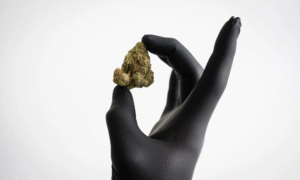Eight Takeaways From Minnesota Democrats’ Marijuana Legalization Bill

Here are a few things that would happen
Minnesotans could grow their own marijuana plants at home, have the drug delivered to their door and get past convictions expunged from their record if the Legislature passes Democrats’ recreational cannabis bill this year.
While the bill must be reviewed by numerous committees and will likely be revised repeatedly, the initial proposal from House DFLers (and an identical bill in the Senate) covers a lot of ground, from social justice and hemp-related regulations to drug tests and adolescent education.
The Star Tribune reviewed the nearly 250-page bill with an eye to answering questions readers asked about marijuana in Minnesota in recent months.
Some questions — such as when the legal marketplace would officially open, how much tax revenue the industry would generate and how much products might cost — can’t be definitively answered yet. But if the bill passes in its current form, here are a few things that would happen:
Possession and use
Minnesotans 21 and older could buy up to two ounces of cannabis flower, eight grams of cannabis concentrate and 800 milligrams worth of edible products at a time. Those buying cannabis products would have to pay a special 8% tax in addition to regular sales tax.
Those limits would also apply to possession in public spaces. At home, however, adults could possess up to five pounds of cannabis flower. They also could grow up to eight cannabis plants in their private residence, but no more than four could be mature and flowering at a time.
Smoking and edible consumption would be allowed only at home, on private property and on the premises of a business or event licensed for on-site consumption of marijuana products.
Expungement and social justice
For the roughly 60,000 Minnesotans with low-level marijuana convictions, the Bureau of Criminal Apprehension would work to automatically seal all related records of arrests, trials, convictions and sentences.
People with marijuana-related felonies could see their cases go before the five-member Cannabis Expungement Board, which could decide whether to expunge a case or resentence to a lower-level offense depending on a variety of factors, including any use of weapons or violence.
Other social justice initiatives in the bill include directing cannabis tax revenue toward community-building grants in areas disproportionately affected by marijuana prohibition. A “social equity applicant” measure would give people from disadvantaged backgrounds a better shot at getting a cannabis business license.
To Read The Rest Of This Article On Star Tribune, Click Here






















